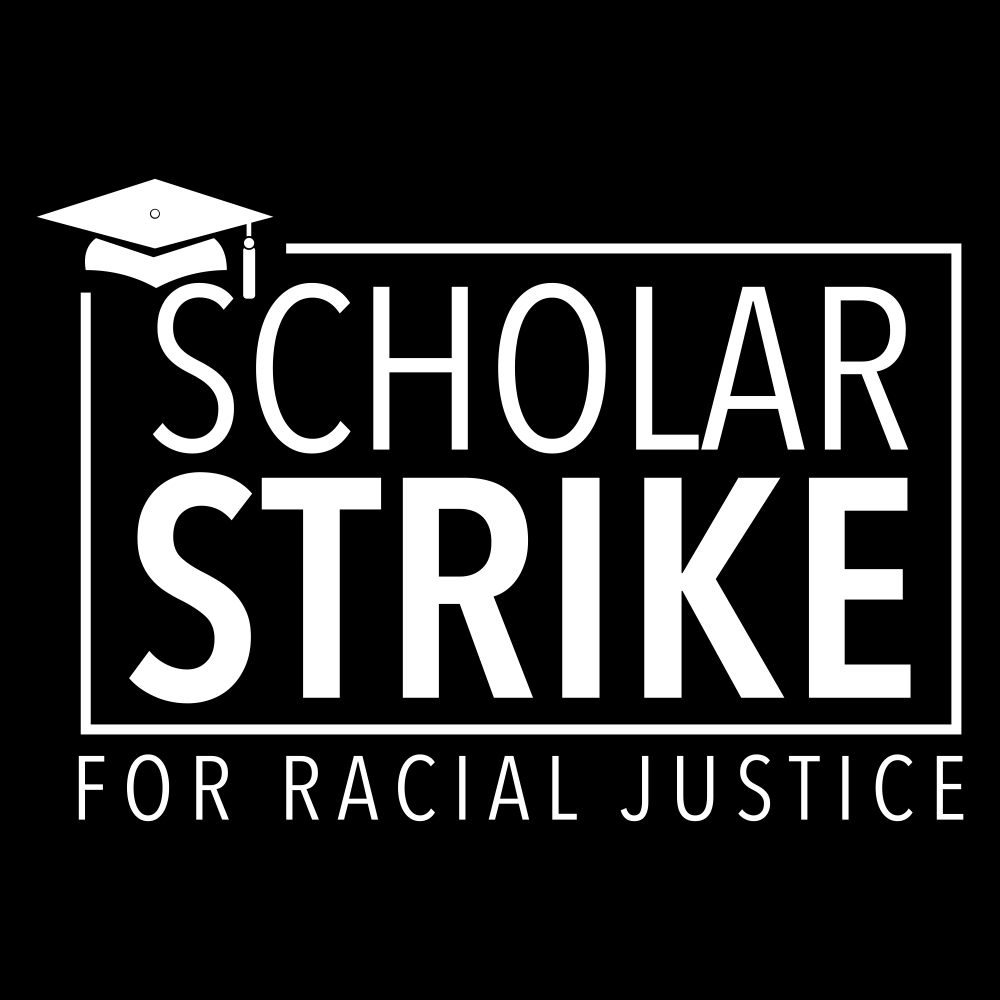This week we participated in the international #ScholarStrike against racism. Those who participated watched remote teach-in videos, brought anti-racist conversations into their classrooms, had reflective conversations, and so much more. You can find anti-racist resources from the #ScholarStrike on YouTube, the strike’s website, and on Twitter. In this issue of the digest, CMRC fellows reflect on the experience.
This week I revisited this powerful and important essay by James Baldwin on race, religion and belonging . I also taught with this essay and was grateful to see this important writing through the eyes of my students.
–– Samira Rajabi

#ScholarStrike was a unique moment. Its success was a testament to the insight and creativity of our friend Anthea Butler. What she realized was that there was a great deal of unsatisfied energy out there. Campuses have of course been places where the unspeakable in America’s racial history has routinely been spoken. But that’s been a problem, as it has left much still to be reckoned with. ScholarStrike called us all out. But it also problematized and taught something about scholarship. Why wasn’t it more controversial? Why didn’t Tucker Carlson and Sean Hannity inveigh against it? Why didn’t more institutions threaten or sanction faculty who participated? Because, presently, our scholarly labor is not valued by publics outside our campuses or really by our institutions. This should be a lesson and a challenge: to reposition our scholarly voices so that withholding them becomes scandalous or threatening. Public scholarship needs to address the terms of its own social valuation.
–– Stewart Hoover
What stood out to me during #ScholarStrike was the amazing and critical work being done on anti-racist pedagogy in K-12. Many parts of higher ed too often silo itself off from K-12 and misses out on important collaboration opportunities. I was particularly taken with the #anticaceralpedagogy work of Professor Ilana Horn.
–– D. Ashley Campbell
Reading Robin D. G. Kelley’s Freedom Dreams: The Black Radical Imagination reminded me of the book of Claude McKay’s poems I’ve been neglecting on my shelf. McKay was a Jamaican writer—who also once held a significant role in the Soviet Union’s Communist International (not mentioned in this John Dewey-introduced edition). He was also a Catholic convert. “There is no white man who could write my book,” he sings in one bit, and a few lines down: “This Negro laughs and prays to God for Light!”
–– Nathan Schneider
An interesting article from this past Sunday’s Denver Post talks about how divinity school grads are pursuing careers as “sacred consultants,” designing rituals for the workplace and now for zoom workplaces
–– Deborah Whitehead
